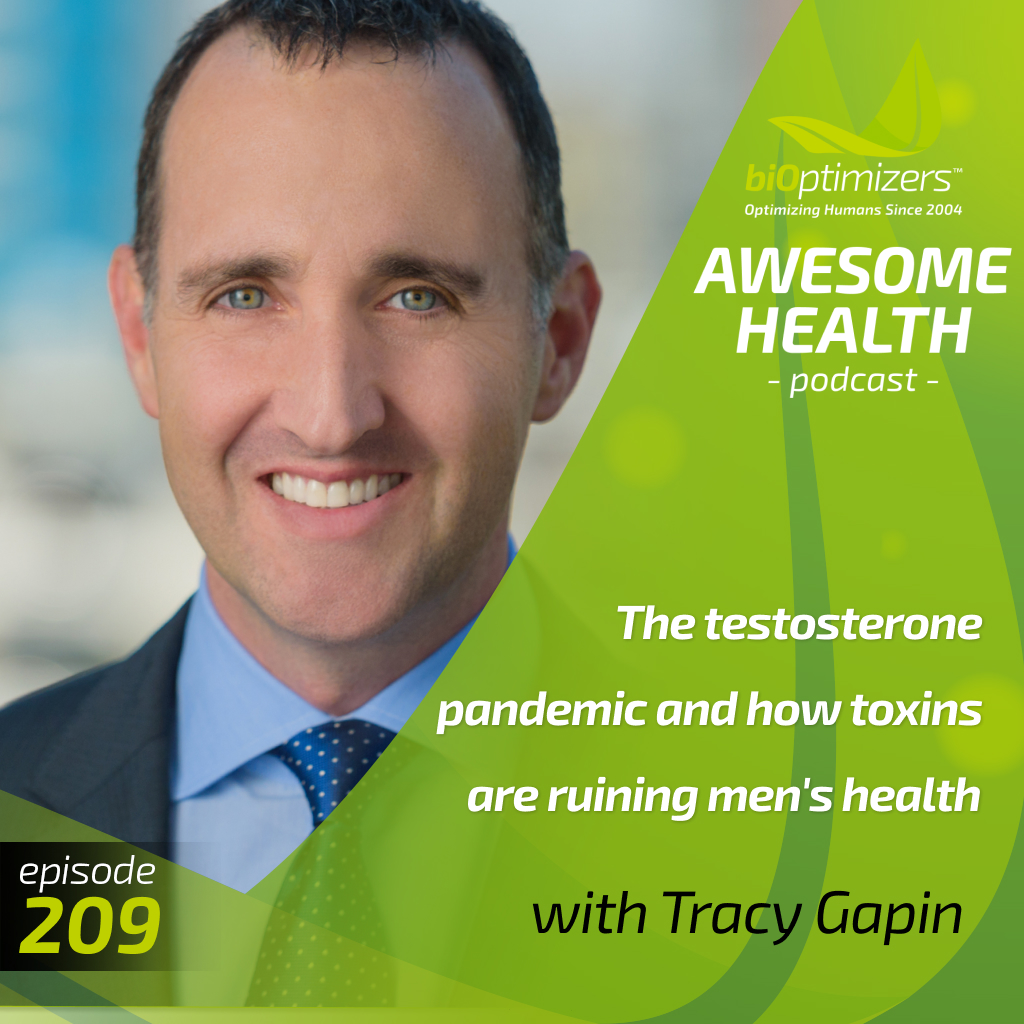209: The testosterone pandemic and how toxins are ruining men’s health

Testosterone levels are plummeting worldwide and it’s having a major impact on men’s health. From decreased cognitive function and sex drive, to increased risk of cardiovascular disease: low testosterone is a real crisis that needs to be addressed.
So what’s behind this testosterone pandemic? According to Dr. Tracy Gapin, an expert on the topic, there are several factors at play including toxins in the environment and our modern lifestyle.
For example, the rise of desk jobs and sedentary lifestyles has taken a toll on men’s health, leading to lower testosterone levels.
Additionally, exposure to toxins like EMFs and pollutants can also disrupt hormone levels contributing to the problem.
Dr. Tracy Gapin is board certified by the American Board of Urology and is a Fellow of the American College of Surgeons.
In 2017, Dr. Gapin founded Smart Men’s Health, focused on optimizing male performance. He offers a personalized path to helping men maximize sexual health, testosterone levels, and prostate health.
Things that can affect testosterone levels
Many things can affect testosterone levels, but one of the most significant is the presence of toxins in the body. These toxins can come from many sources, including the environment, food, and even personal care products.
One of the most common ways that toxins can affect testosterone levels is by binding to sex hormone binding globulin (SHBG).
SHBG is a protein that attaches to hormones like testosterone, and when it does so, it prevents them from being able to enter cells and have their desired effect. This can lead to a decrease in overall testosterone levels.
Testosterone levels versus free testosterone
Testosterone levels and free testosterone are two very important things to consider when thinking about a man’s health.
Testosterone is the main male sex hormone, and it is responsible for many things, including muscle mass, bone density, and sex drive.
Free testosterone is the active form of testosterone that is not bound to proteins in the blood and can thus enter cells and have a cellular effect.
Low levels of testosterone can lead to many problems, such as low energy levels, decreased sex drive, erectile dysfunction, weight gain, and cognitive decline. It is thus important to maintain healthy levels of both testosterone and free testosterone to maintain optimal health.
How can men increase their free testosterone
As a man, you want to have high levels of free testosterone. This is the testosterone that is not bound to proteins in your blood and is available for your body to use. There are several things you can do to increase your free testosterone levels.
First, avoid toxins as much as possible. Endocrine disruptors can interfere with testosterone production and lower levels of free testosterone in the blood. Try to avoid plastics and eat organic foods whenever possible.
Second, exercise regularly. Exercise helps to increase testosterone production and can also help to lower SHBG levels. Strength training is especially beneficial for increasing testosterone levels.
Third, get enough sleep. Sleep is important for overall health and well-being, and it is also crucial for testosterone production.
Finally, try supplementation. Zinc, magnesium, and vitamin B6 are all nutrients that have been shown to boost testosterone levels. You can find these nutrients in supplement form or foods like oysters, dark chocolate, pumpkin seeds, and spinach.
In this podcast, you will learn about:
- The testosterone pandemic
- Ways to optimize male performance.
- Tips for maintaining good testosterone levels and prostate health
- How diagnostics can help identify the cause of low energy and drive in men.
And so much more.
EPISODE RESOURCES:





